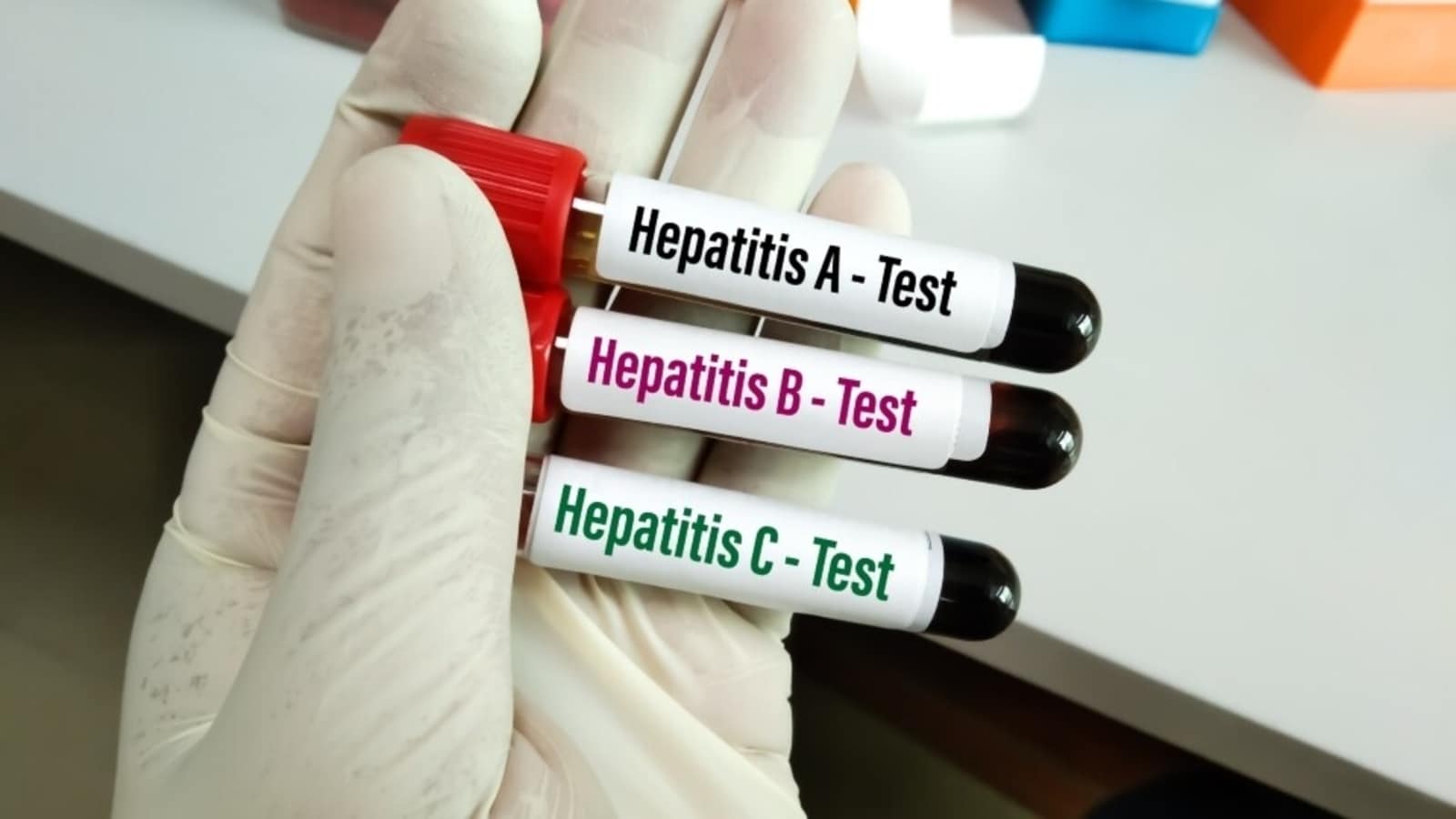The World Health Organisation states that hepatitis is an inflammation of the liver that is caused by a variety of infectious viruses and non-infectious agents. It leads to a range of health problems, including severe liver damage and cancer, some of which can be fatal. There are 5 main strains of the virus, types A, B, C, D and E.
Also Read | Woman (59) who struggled to walk reveals how she reversed arthritis, diabetes, lost 7 kg with just strength training
Hepatitis B, like most hepatitis viruses, can sneak up on you, but often, it is a chronic illness for which there’s no cure. Per the National Institutes of Health (NIH), worldwide estimates suggest that more than 2 billion people have been infected with HBV, and that 248 million of these people are chronically infected. Meanwhile, the WHO says that India accounted for the second-highest number of cases of hepatitis B and C in 2022 after China.
What’s causing a rise in hepatitis cases?
In an interview with HT Lifestyle, Dr Vikram Vora, medical director at International SOS (India), discussed what’s fueling this rise in hepatitis cases.
Dr Vora said, “It might surprise you to learn that even in 2025, hepatitis, a disease many associate with the past, continues to be a significant threat. It is quietly infecting millions across the world. Unfortunately, some of the very things of the ‘new world’ that symbolise freedom, adulthood, and modern healthcare, like tattoos, vaccinations, and medical treatments, may be fueling new infections.”

Let’s unpack the real drivers and what we should be watching out for:
Vaccinations
According to Dr Vora, the hepatitis B vaccine has been around for decades and is incredibly effective. In fact, most of us assume we’re protected. But are we?
Highlighting how, in India, universal hepatitis B vaccination only became standard for newborns in 2007, Dr Vora revealed, “If you were born before then, there’s a good chance you never received the full vaccine series. Or any dose at all. Even among those vaccinated, incomplete records, missed boosters, and a lack of adult catch-up programs have created gaps in immunity.”
Explaining how this is creating a major issue, Dr Vora highlighted, “Many hospitals and clinics do not have a protocol in place to routinely check hepatitis B immunity before administering injections or performing minor surgeries. A classic case of assumption trumping due diligence. You must ask your doctor for an anti-HBs antibody test to check if you’re actually immune, and get vaccinated if you’re not.”
Body inking
A risk that’s often overlooked while getting a tattoo is bloodborne viruses like hepatitis B and C. Dr Vora explained, “While many tattoo studios follow strict hygiene protocols, there are many unregulated or informal parlours, offering cheap, quick services that do cut corners. Needles get reused between clients, equipment is improperly sterilised, and contamination of the ink together creates perfect conditions for hepatitis transmission.”
He cautioned, “Piercings also pose similar risks. How many of us have actually asked a tattoo artist about autoclave cycles or single-use ink caps? Do we even know what these are and how important this information is?”
He stressed that if you must get a tattoo or a piercing, stick to licensed studios that follow universal precautions. “Ask about sterilisation, single-use equipment, and don’t hesitate – it’s your blood that’s at risk,” he advised.

Unsafe medical practices
According to Dr Vora, in clinics, wellness centres, and even spas offering IV drips, B12 shots, or glutathione therapy, the reuse of needles and poor hygiene are still common, especially where these places are minimally regulated.
“Rural and semi-urban areas are worse, with quacks still using glass syringes and administering injections for everything from fever to back pain,” he stated. Therefore, he advised that it is wise to choose reputed medical centres.
“If you really need to get IV therapy or shots, ensure syringes are unwrapped in front of you and never hesitate to speak up. Blood is not always visible. Microscopic amounts can linger on poorly sterilised instruments—like the ones used in salons for manicures, pedicures, or shaving. The same goes for dental clinics, especially those that skip autoclaving due to time or cost constraints,” Dr Vora revealed.
Hepatitis B is preventable, but only if you act now
Dr Vora highlighted that in hepatitis B and C, even a tiny amount of infected blood is enough to transmit the virus. “Best to avoid salons that don’t sterilise metal tools or reuse razors. Choosing dental clinics that advertise infection control policies is a wise move.”
Moreover, hepatitis doesn’t always announce itself with symptoms. It can sit silently in your body for years, slowly damaging your liver. So, what can you do? Dr Vora suggests:
▪ Ask your doctor for hepatitis B and C screening. It’s a simple blood test.
▪ Hepatitis B vaccine: Get vaccinated. It is preventable, so don’t wait.
▪ Whether it’s a tattoo studio, clinic, or salon, your health is your responsibility. Ask questions. Demand answers.
▪ Speak up among your peers, friends and in the community to raise awareness.
Lastly, Dr Vora stated that prevention can be as simple as staying informed and making smart choices.
Note to readers: This article is for informational purposes only and not a substitute for professional medical advice. Always seek the advice of your doctor with any questions about a medical condition.
